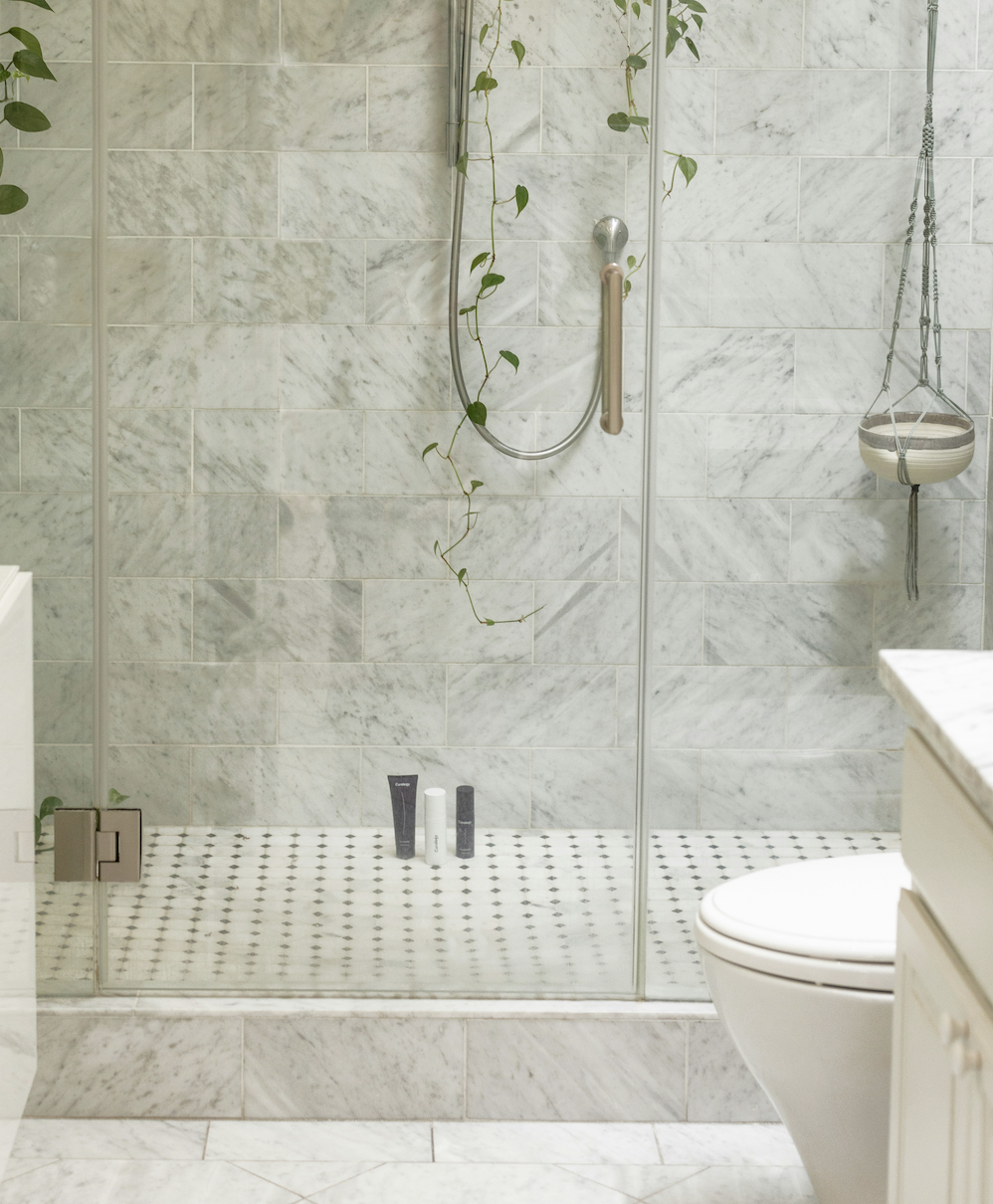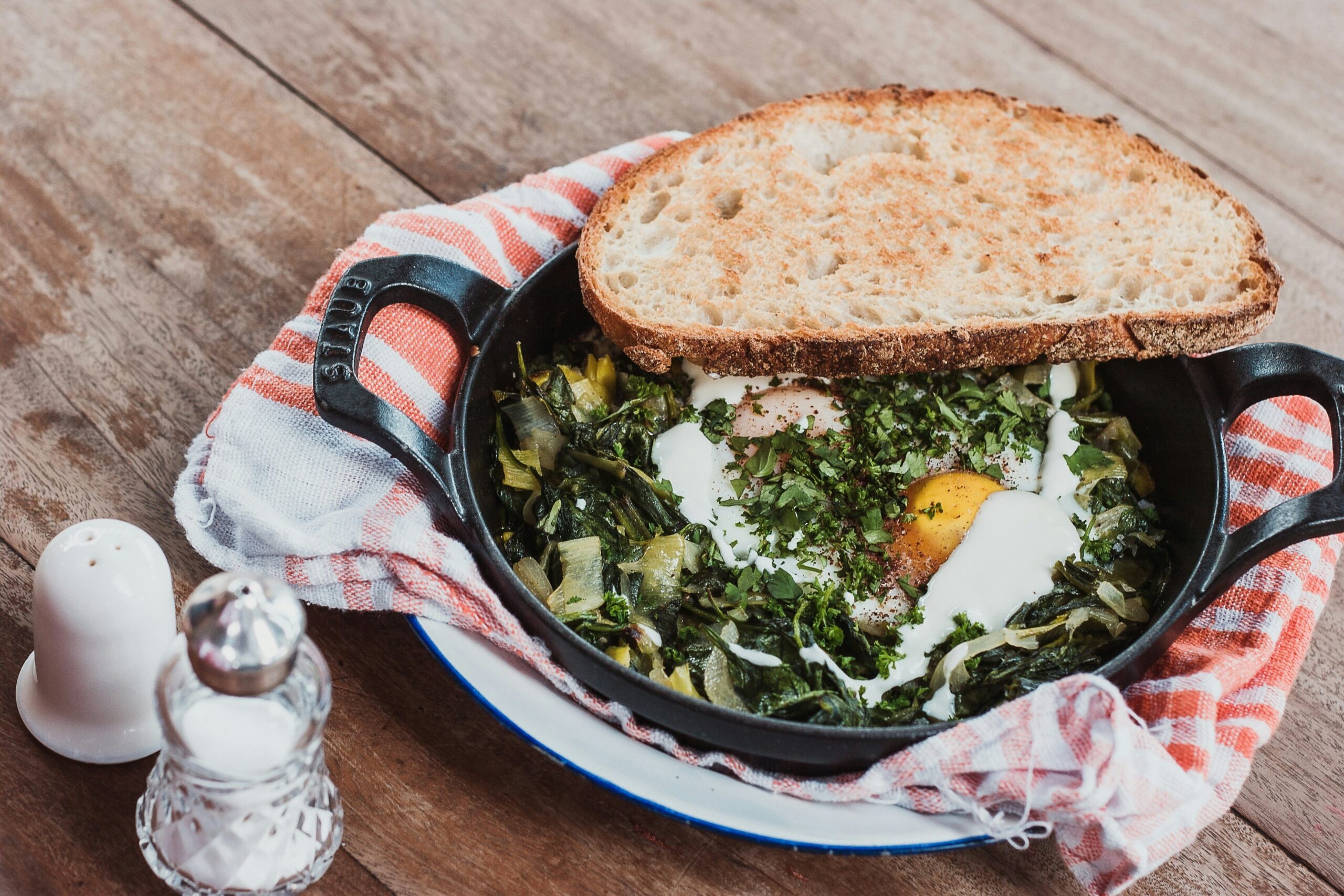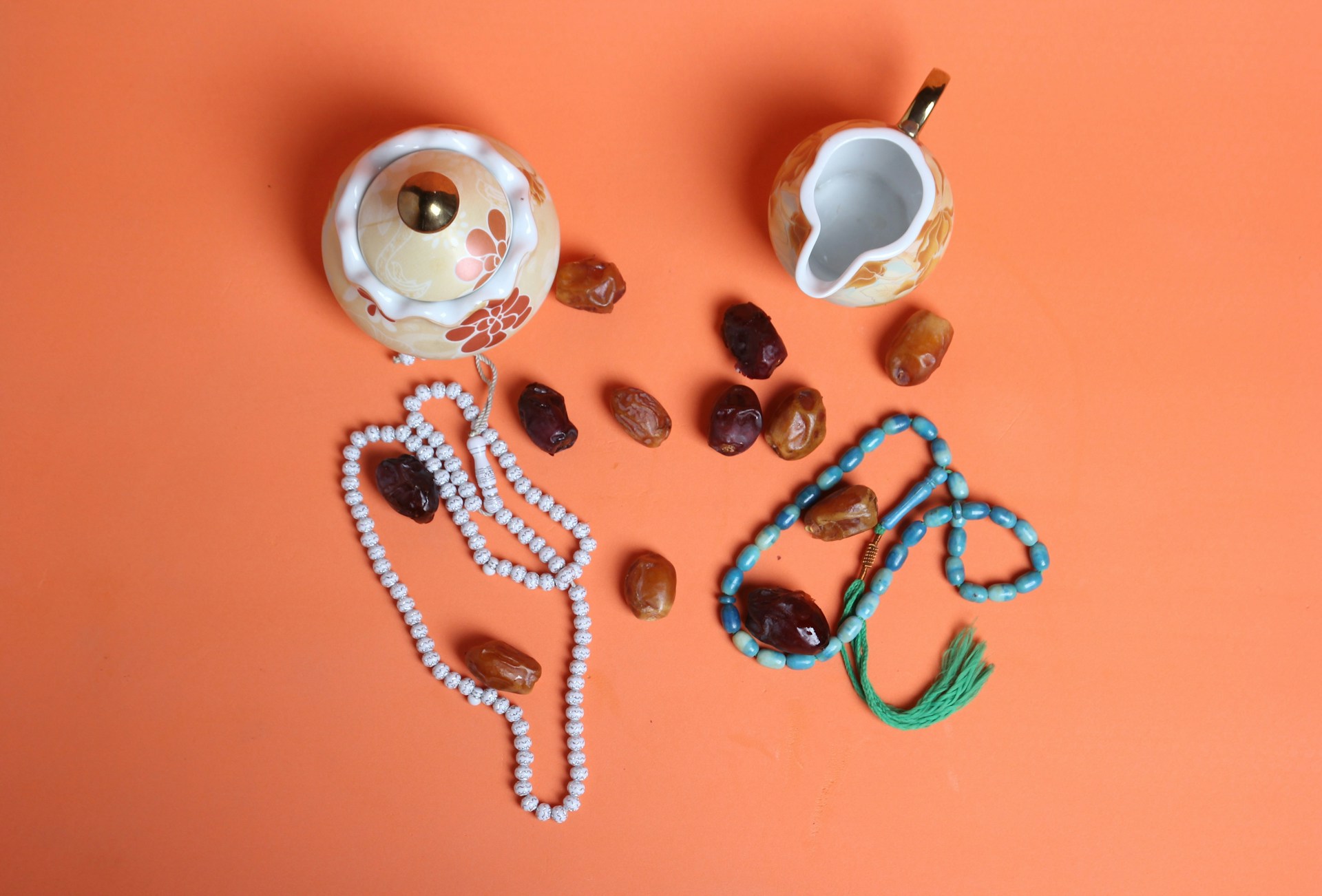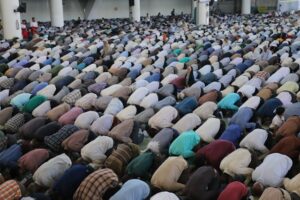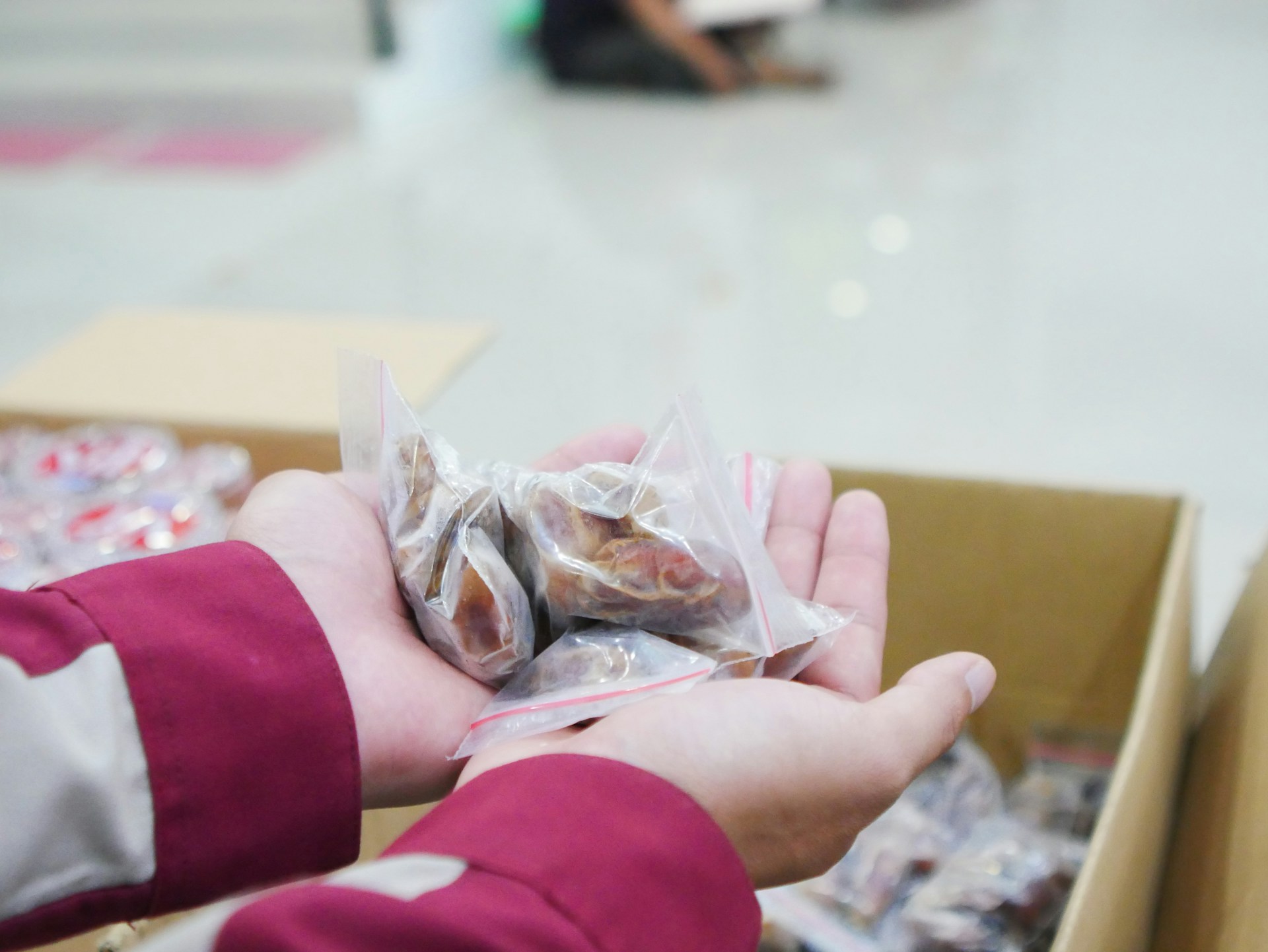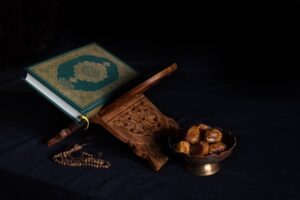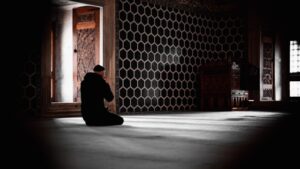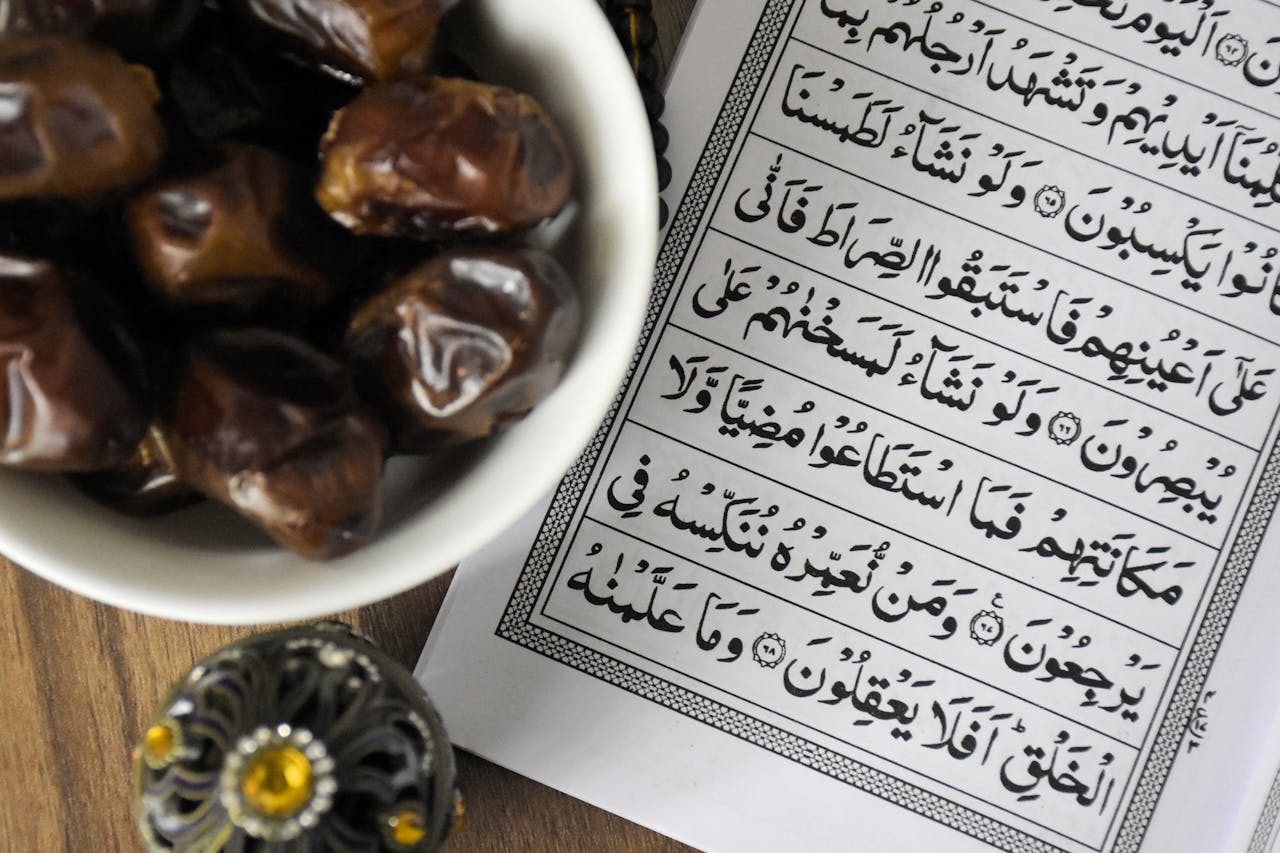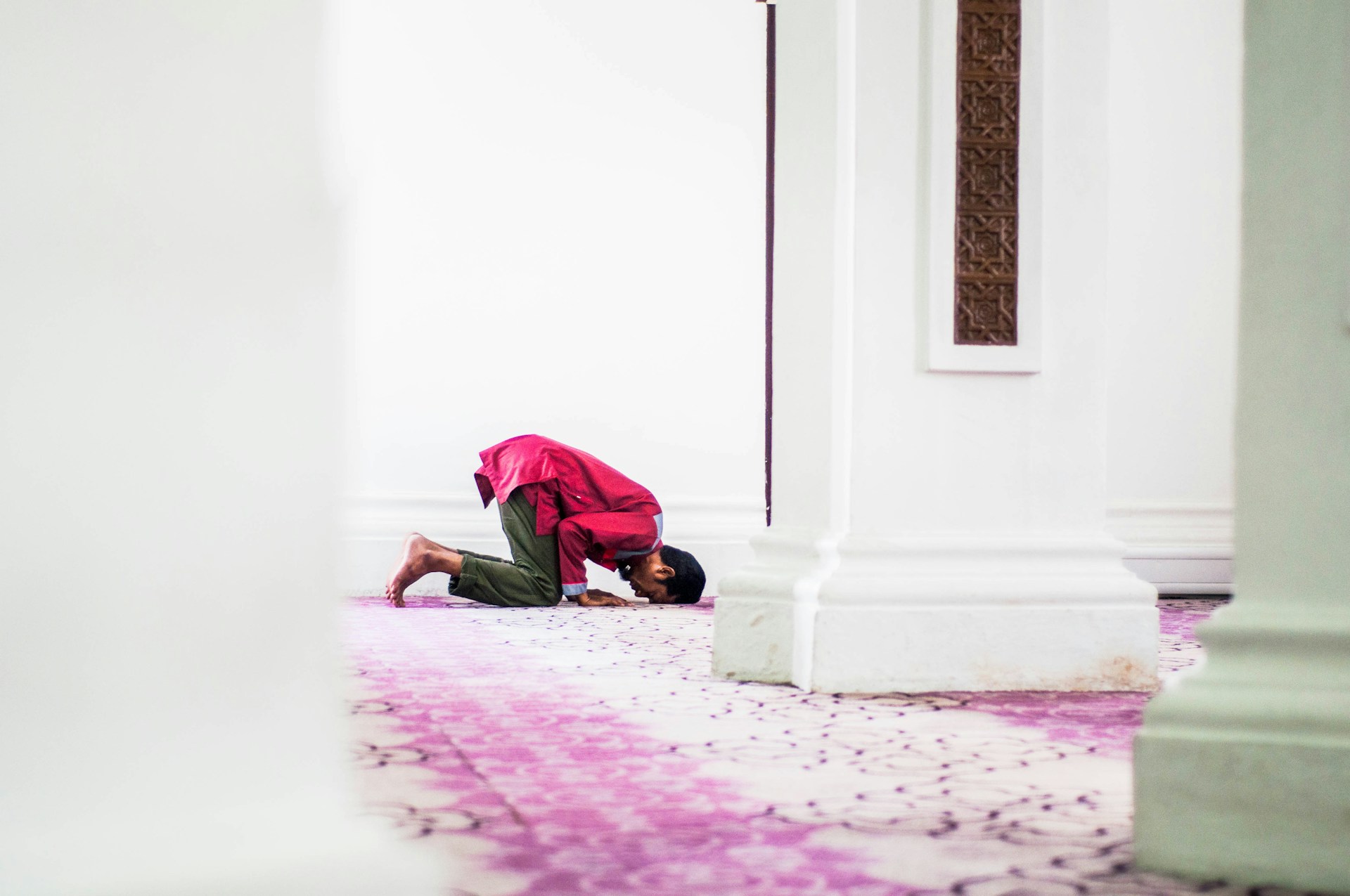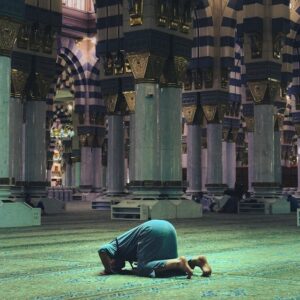In Islam, the instructions for making a dua for travelling and offering Sunnah travel supplications are apparent, as they protect you and help you build a strong connection with Allah SWT.
What the Quran Says About Travelling
When you embark on your travels, always start by making all the relevant duas for travelling and following the guidelines of Prophet Muhammad PBUH for safe travels.
We will discuss all the necessary measures to make for travelling and learn their origin and significance.
Let’s dive into the correct way to make dua for travelling and understand its importance for Muslims travelling.
Why Is Dua Important When Travelling?
The Prophet Muhammad PBUH spoke about offering duas and travelling supplication multiple times.
Hadith in al-Bayhaqi, at–Trimidhi–Sahih 1905 narrates,
عَنْ أَبِي هُرَيْرَةَ قَالَ قَالَ رَسُولُ اللَّهِ صَلَّى اللَّهُ عَلَيْهِ وَسَلَّمَ ثَلَاثُ دَعَوَاتٍ مُسْتَجَابَاتٌ لَا شَكَّ فِيهِنَّ دَعْوَةُ الْمَظْلُومِ وَدَعْوَةُ الْمُسَافِرِ وَدَعْوَةُ الْوَالِدِ عَلَى وَلَدِ
The translation is as follows;
“Allah SWT will not reject three prayers/supplication, the supplication for parents for his child, the supplication of the one who is fasting, and the supplication of the traveller.”
What Is the Dua of a Traveller?
According to the Sunnah of the Muhammad PBUH, offering a dua for travelling is a way to build a strong connection with Allah SWT and offers you protection, such that your travelling journey is fully protected by the Allah (SWT) and by performing continuous Azkaar (remembrance) and making dua for a safe journey, protects you from Evil.
Is a Traveller’s Dua Accepted?
In another instance, the Prophet Muhammad SAW says three dua for travelling;
A reference from Sunan Al-Tirmizi Book 7 Hadith 5 narrates,
Arabic: أبي هريرة رضي الله عنه قال: قال : رسول الله صلى الله عليه وسلم : “ ثلاث دعوات مستجابات لا شك فيهن: دعوة المظلوم، ودعوة المسافر، ودعوة الوالد على ولده
The translations of which is:
“These supplications are answered without a doubt: the duas of the oppressed, the traveller, and the parents of their child/children.”
11 Duas for Travelling For a Safe Journey

There are many Sunnah duas, supplications, raka, and dua for safe journey, regardless of the time and distance required for their completion.
Sunnah Before Traveling
It is the Sunnah of the Prophet Muhammad PBUH that you leave your home after offering two raka Sunnah prayers.
An explanation of one of his hadiths reported that before leaving your house, safeguard yourself against evil by performing two raka Sunnah, and when you return to your home, ensure that you perform two more Sunnah raka.
A Hadith in Musnad Al-Bazzar 380 narrates,
“When you leave your house, perform two raka’h and this will safeguard you against evil. When you enter your home, perform another two raka’h, and this will safeguard you against evil.”
In this prayer, you can continue with any surah following Surah Fatiha; however, Surah Al-Kafiroon and Al-Ikhlas hold significance.
Dua After You Leave the House
When you leave your house, many things cross your mind:
- Will my belongings be safe till I return?
- Will I safely reach my destination and perform my goal?
- Will I encounter any hurdles in my way?
- Will everything be safe like it was before?
Allah SWT has blessed the Muslims with one answer to all their worries: making dua for a safe journey with the zeal of faith and depth of their hearts.
While leaving your home, the most beautiful and significant dua for a safe trip is below;
A Hadith in Sunan Abi-Daud 5095 narrates;
Arabic: بِسمِ اللَّهِ، توَكَّلتُ على اللَّهِ، لا حَولَ ولا قوَّةَ إلَّا باللَّهِ، يقالُ لَهُ: كُفيتَ، ووُقيتَ، وتنحَّى عنهُ الشَّيطانُ
Transliteration: Bismillah, tawakkaltu ‘alAllah, wa la hawla wa la quwwata illa billah
“In the name of Allah, I place my trust, and there is no might or power except by Allah.”
In multiple instances, people directly linked with the Prophet PBUH have confirmed that He (SAW) quotes that the person who recites these travelling duas with complete belief rested upon Allah will be protected and served with the protection of Allah SWT and the Evil will stay far off from him/her while travelling away from home.
Travel Dua’s When You Inaugurate the Journey
- What is Dua for an Easy Journey?
When you begin the long journey by any medium of vehicle, transport, or even by foot, you must recite thrice,
Arabic: اَللّٰهُ أَكْبَرُ
Transliteration: ‘Allahu Akbar”
Translation: Allah is the greatest.
While driving your car, dua for travelling in a car in Arabic is stated below:
سُبْحَانَ الَّذِيْ سَخَّرَ لَنَا هٰذَا وَمَا كُنَّا لَهُ مُقْرِنِيْنَ، وَإِنَّا إِلَى رَبِّنَا لَمُنْقَلِبُوْنَ
The transliteration of this dua is as follows;
Subhaanal-lathee sakhkhara lanaa haathaa wa maa kunnaa lahu muqrineen. Wa ‘innaa ‘ilaa Rabbinaa lamunqaliboon.
The translation of this dua is as follows;
“Glory is to Allah, Who has given us what we could never have had through our endeavours. And indeed to our Lord, we will return.”
Dua When travelling Long Distance
In the Holy Prophet PBUH tradition’s, these travelling duas are the ultimate refuge and protection from evil and wrong-doers in any place;
A hadith reported in Sahih Muslim 2/978,
اَللّٰهُمَّ إِنِّيْ أَعُوْذُ بِكَ مِنْ وَعْثَاءِ السَّفَرِ، وَكَآبَةِ الْمَنْظَرِ، وَسُوْءِ الْمُنْقَلَبِ فِي الْمَالِ وَالْأَهْلِ
[/quranic_border]Transliteration: Allaahumma ‘innee ‘a’oothu bika min wa’thaa’is-safari, wa ka’aabanl-mandhari, wa soo’il-munqalabi fil-maaliwal’ahli.[/quranic_border]
The translation is as follows:
[/quranic_border]“O Allah, I seek refuge in You from this journey’s hardships, from the wicked sights in store and from finding our family and property in misfortune upon returning.”[/quranic_border]
Dua If the Sun Sets

In the past, Muslims travelled at night as it is a scientific fact that the land/roads somewhat contract and cool down, and it will be easier to protect yourself from enemies.
The following comprehensive travelling duas convey a perfect message of protection and refuge in Allah, the translation of which is
Surah Al-Araf 200 narrates,
ا أَرْضُ ربِّي وربُّكِ اللهُ، أَعُوذُ بِاللهِ مِنْ شَرِّكِ وشَرِّ مَا فِيكِ، وَشَرِّ مَا خُلِقَ فِيكِ، وَشَرِّ مَا يَدُبَّ عَلَيْكِ، أَعُوذُ باللهِ مِنْ أَسَدٍ وأَسْوَدَ، وَمِنَ الْحَيَّةِ وَالْعَقْرَبِ، ومِنْ سَاكِنِ الْبَلَدِ وَمِنْ والِدٍ وَمَا وَلَدَ.
Transliteration: Yā arḍu Rabbī wa Rabbuki-llāh. A‘ūdhu bi-llāhi min sharriki wa sharri mā fīk, wa sharri mā khuliqa fīk, wa sharri mā yadibbu ‘alayk wa a‘ūdhu bi-llāhi min asadin wa aswad, wa min al-ḥayyati wa-l-‘aqrab, wa min sākini-l-balad, wa min wālidin wa mā walad.
The translation follows;
“Earth, our Lord is the same: Allah. I seek refuge in Allah from all kinds of evil that is on you and created on you and the danger that crawls on you. I seek refuge in Allah from creatures, dark things, poisonous creatures, and owners of the land, their subordinates (parents and offspring).”
Dua if Dawn Proceeds
If you started your long journey in the heart of the night or post-midnight and encountered dawn or morning in between, recite the following travelling duas for ease and success.
سَمَّعَ سَامِعٌ بِحَمْدِ اللّٰهِ، وَحُسْنِ بَلَائِهِ عَلَيْنَا، رَبَّنَا صَاحِبْنَا، وَأَفْضِلْ عَلَيْنَا، عَائِذًا بِاللّٰهِ مِنَ النَّارِ
Transliteration: Sami’a saami’un bihamdillaahi wa husni balaa’ihi ‘alaynaa. Rabbanaa saahibnaa, wa ‘afdhil ‘alaynaa ‘aa’ithan billaahi minan-naar.[hadith_border]
The translation is,
[hadith_border]“Allah Who listens hears that we praise Him for all the good things He blesses us with. Allah, stay with us and award us with your favours. I seek refuge from Allah in the hellfire.”
- Dua When Returning From Pilgrimage or Battle
According to the Sunnah of the Prophet PBUH, recite this thrice:
اَللّٰهُ أَكْبَرُ
transliteration ‘Allahu Akbar’, meaning Allah is the greatest.
What is the Prayer for Travel in Islam?
In continuation of this travel dua, recite another significant dua for travelling in the car, and while driving, the translation of which is as follows;
A hadith is Sahih Muslim 3275 narrates;
اَللّٰهُمَّ إِنَّا نَسْأَلُكَ فِيْ سَفَرِنَا هٰذَا الْبِرَّ وَالتَّقْوَى، وَمِنَ الْعَمَلِ مَا تَرْضَى، اَللّٰهُمَّ هَوِّنْ عَلَيْنَا سَفَرَنَا هٰذَا وَاطْوِ عَنَّا بُعْدَهُ، اَللّٰهُمَّ أَنْتَ الصَّاحِبُ فِي السَّفَرِ، وَالْخَلِيْفَةُ فِي الْأَهْ
Transliteration: Allaahumma ‘innaa nas’aluka fee safarinaa haathal-birrawattaqwaa, waminal-‘amalimaa tardhaa, Allaahumma hawwin ‘alaynaa safaranaa haathaa watwi ‘annaa bu’dahu, Allaahumma ‘Antas-saahibu fis-safari, walkhaleefatu fil-‘ahl
“Allah; on this journey, we ask You for goodness and devoutness and for works that please You. Allah, enlighten us on this long journey and ease its distance for us. Allah, You are the One on whom we rely for the safety of our families and the companion on the route”.
Which Surah is Dua for Travelling?
To increase the remembrance of Allah SWT and ask for his protection, recite this dua in continuation to the previous one:
اَللّٰهُمَّ إِنَّا نَسْأَلُكَ فِيْ سَفَرِنَا هٰذَا الْبِرَّ وَالتَّقْوَى، وَمِنَ الْعَمَلِ مَا تَرْضَى، اَللّٰهُمَّ هَوِّنْ عَلَيْنَا سَفَرَنَا هٰذَا وَاطْوِ عَنَّا بُعْدَهُ، اَللّٰهُمَّ أَنْتَ الصَّاحِبُ فِي السَّفَرِ، وَالْخَلِيْفَةُ فِي الْأَهْلِ
Transliteration: Allaahumma ‘innaa nas’aluka fee safarinaa haathal-birrawattaqwaa, waminal-‘amalimaa tardhaa, Allaahumma hawwin ‘alaynaa safaranaa haathaa watwi ‘annaa bu’dahu, Allaahumma ‘Antas-saahibu fis-safari, walkhaleefatu fil-‘ahli
The translation is as follows;
“Allah, I seek refuge in You from the hardships of my expedition and all the wrongful sights and finding our belongings and family from misfortunes when we return”.
Which Surah Is Good for Travelling?
According to the Sunnah of the Holy Prophet PBUH, the continuous recitation of travel duas protects us from the hurdles that we might come across while travelling, and we are the closest to Allah in these times, so we can take advantage of this opportunity to ask Him for His forgiveness and blessings.
How Do You Say Safe Journey in Islam?
Another Quranic Surah that reflects upon the importance of supplication quote:
للّٰهُمَّ إِنَّا نَسْأَلُكَ فِيْ سَفَرِنَا هٰذَا الْبِرَّ وَالتَّقْوَى، وَمِنَ الْعَمَلِ مَا تَرْضَى، اَللّٰهُمَّ هَوِّنْ عَلَيْنَا سَفَرَنَا هٰذَا وَاطْوِ عَنَّا بُعْدَهُ، اَللّٰهُمَّ أَنْتَ الصَّاحِبُ فِي السَّفَرِ، وَالْخَلِيْفَةُ فِي الْأَهْ
“Allah, You are the aide among my family and the companion of my journey. Allah, I seek your shelter from the difficulties on my expedition, sorrow upon returning, imploring You as a subdued person, and from evil overtaking my possessions and family. “
Transliteration: Allaahumma ‘innaa nas’aluka fee safarinaa haathal-birrawattaqwaa, waminal-‘amalimaa tardhaa, Allaahumma hawwin ‘alaynaa safaranaa haathaa watwi ‘annaa bu’dahu, Allaahumma ‘Antas-saahibu fis-safari, walkhaleefatu fil-‘ahli
Dua For Travelling by Plane and Car

- While Travelling On a Height
Ascending or descending from a considerable height, such as when travelling in an escalator, a lift, a bridge, or on a flight on a plane or helicopter, Muslims are encouraged to recite specific dua’s or supplications to ask for protection and dua for someone travelling on a plane or during the flight is highly significant; While ascending, recite thrice;
Arabic: اَللّٰهُ أَكْبَرُ
‘Allahu Akbar,’ which means that Allah is the greatest
And while descending, recite
Arabic: ٱللَّٰهِ سُبْحَانَ
‘Subhan Allah,’ which translates to Allah is perfect.
These two supplications have been approved by the closest to the Prophet as His (PBUH) Sunnah. Making dua for someone travelling on the plane during the flight creates a deep connection with Allah SWT, and He blesses you and that person.
- When Boarding On An Animal or Ship
According to the Holy Quran, in the verse Surah-Hud 11/41, Allah SWT commands,
Transliteration: Wa qaalar kaboo feehaa bismil laahi majraihaa wa mursaahaa; inna Rabbee la Ghafoorur Raheem.
”In the name of Allah, board it! It will sail and set down the anchor. For sure, the Lord is All-forgiving and the most Merciful.”
Dua When Your Animal Stumbles While on Journey
If your animal, which is the medium of transport for either you or the luggage, stumbles and falls, recite the following Dua for travel upon loading on it for Allah SWT’s aid,
ٱللَّٰ بِسْمِ
The transliteration of which is Bismillah
And it translates to,
In the Name of Allah.’
How Do You Pray for a Traveller?
If you are staying at somebody’s home for days or a few minutes, either you are known to the host or a total stranger, ensure that you bless them with this dua,
أَسْتَوْدِعُكُمُ اللّٰهَ الَّذِيْ لَا تَضِيْعُ وَدَائِعُهُ
Transliteration: Astawdi’ukumul-laahal-lathee laa tadhee’u wadaa’i’uhu.
The translation in English is:
“I leave you in the care and supervision of Allah, as nothing is bygone in His supervision.”
Dua For Safe Travel For a Loved One
During your expeditions, you might face some hurdles. Certain situations are in our control, but some of them are unavoidable.
The easiest way to escape these difficulties is to increase zikr and repeatedly recite Istighfar, which means seeking Allah‘s refuge and mercy.
ٱسْتِغْفَار
The Prophet Muhammad PBUH repeatedly focused on increasing the amount of Istighfar throughout your expedition, freeing you from worries and hardships.
Dua on Returning Home

1. Supplication When You Return Home
As the Sunnah, we must offer two Sunnah-raka upon returning to our residence.
This supplication is done to thank Allah SWT for His protection and mercy against evil and wrong-doers.
2. Dua When Approaching Your Residence
When you have completed your expedition, recite the following dua when entering your residence.
The translation in English follows:
“We return in remorse, in prayers, and while praising Allah.”
Importance of Making Dua While Travelling;
- As much as praying five times a day holds significance, travelling dua’s and supplications hold equal importance.
- Allah will answer your travel prayers if they are in your favour.
- Prayers for a good and pious husband or wife are granted if the person praying is unmarried. Prayers for the husband or wife to stay on the right path are all granted if married.
- Making dua while entering your vehicle and starting your long journey keeps you safe from accidents.
- If you are in any distress or hardship regarding health, children, faith, relationships, or finances, Allah SWT will answer your prayers as He is the closest to the travellers.
- Maintains a strong connection with Allah and gives you a sense of satisfaction.
- Increases your faith and protects you from the wrong while travelling.
- Allah SWT always awards the duas while performing Umrah. The duas you can make while fulfilling the obligations of Umrah are for parents, children, siblings, friends, faith, finance, life, and health.
- While travelling in remote areas or at night, travel dua safeguards you from accidents, environmental hazards, and dangerous creatures.
Summary
Prayers, supplications, and travelling duas are essential aspects of a Muslim’s life, specifically while travelling.
Following the Sunnah of the Holy Prophet Muhammad PBUH, during travelling, we convert the journey into a prayer, which guides us to the correct paths and protects us from all kinds of evil.
Recitations from the Holy Quran, Islamic dua for travelling, as the Prophet Muhammad SAW mentioned, and Sunnah prayers will help you through the hurdles during the travel journey.





